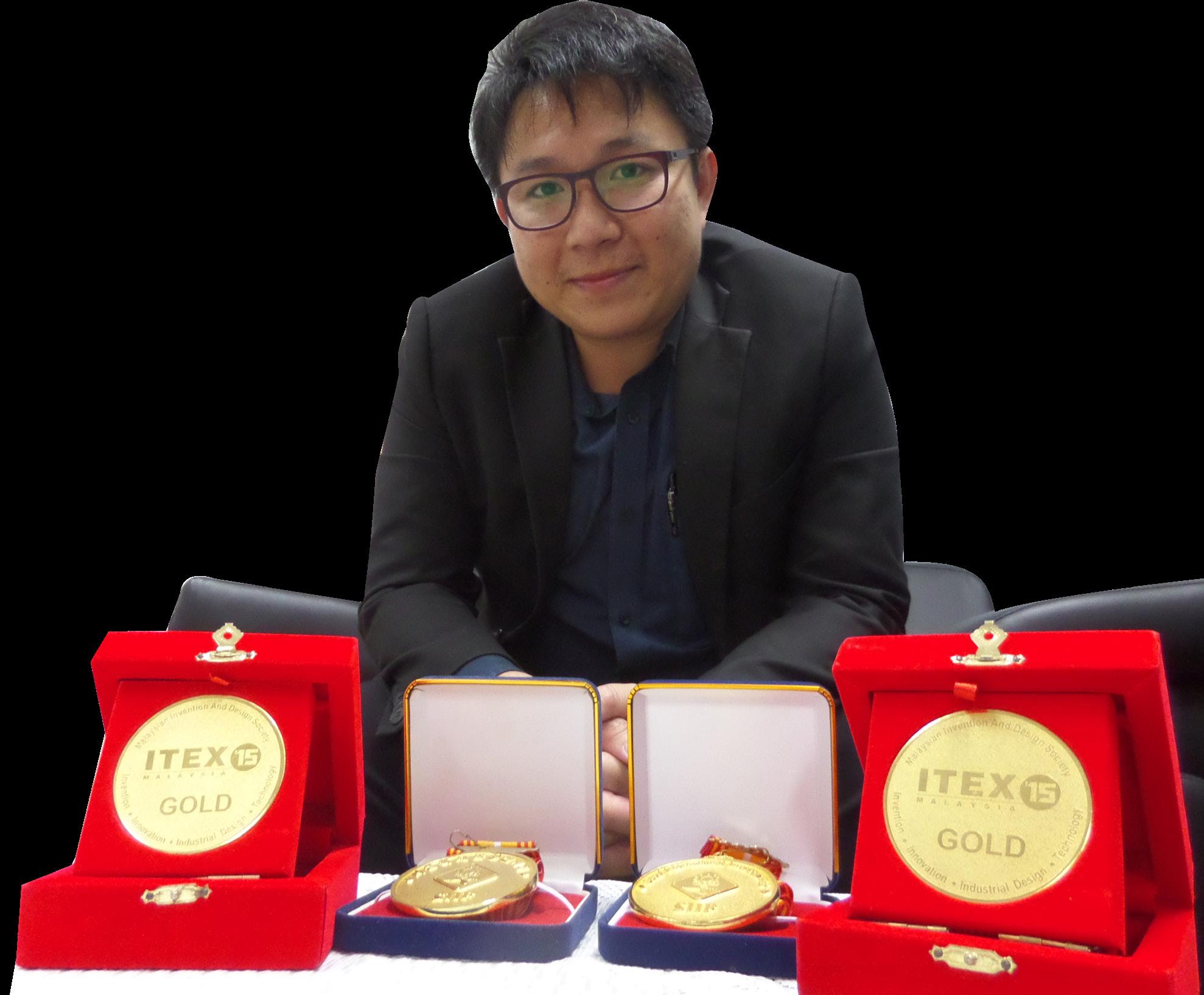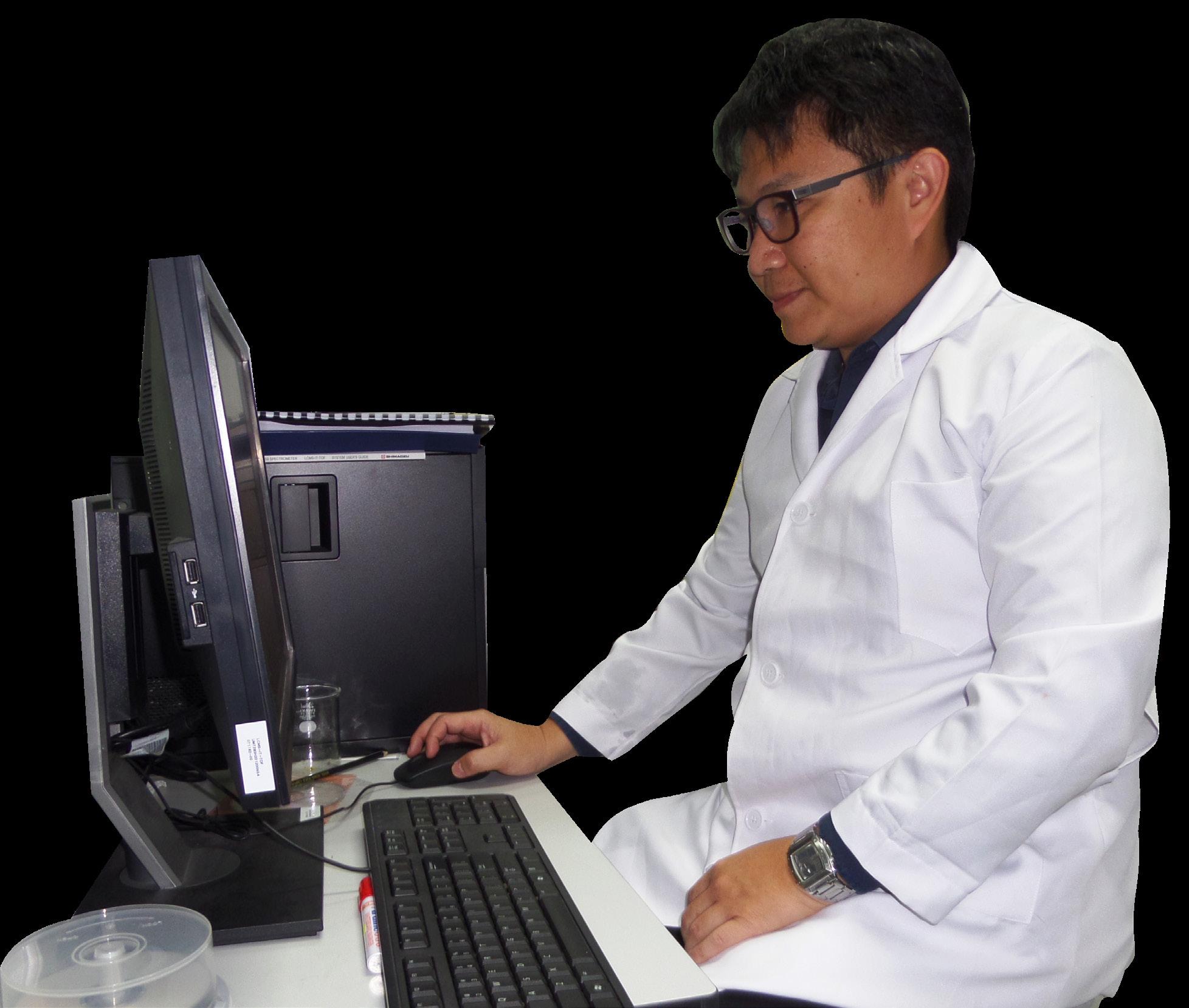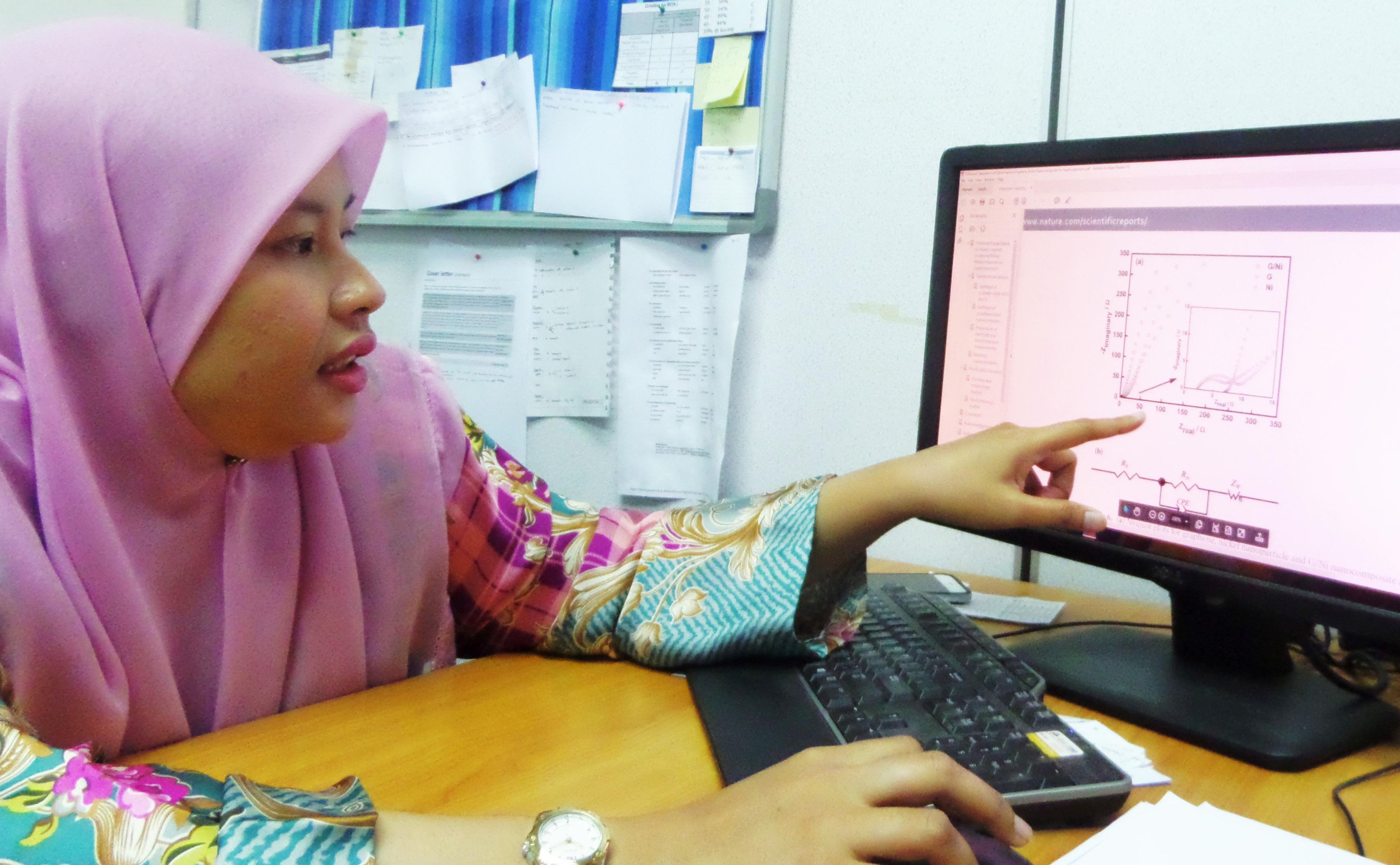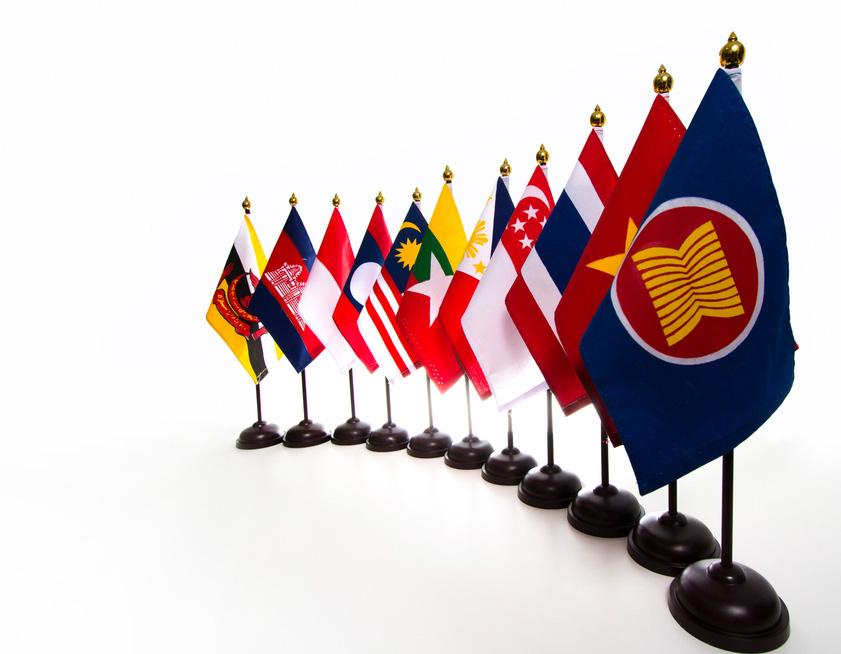
7 minute read
YOUNG ACADEMICIAN Assoc Prof Dr. Yeong Yik Sung
Assoc. Prof. Dr. Yeong Yik Sung
YO U N G ACADEMIcian
Advertisement

An expert in Applied Biological Science at Universiti
Malaysia Terengganu (UMT)’s Institute of Marine Biotechnology (IMB) research into microscopic molecules could hold great breakthroughs for the aquaculture industry by helping the fight against marine organism diseases, thus providing great economic impact by improving the productivity of the fisheries industry as a whole.
Watching him work with cutting-edge equipments at the IMB laboratory, one may not guess that Assoc. Prof. Dr. Yeong Yik Sung’s research has anything to do with fish or other marine organisms because he spends most of his time analysing biochemicals.
Assoc. Prof. Dr. Yeong’s work falls under IMB’s Immune and Molecular Therapeutics research and it centres on studying the relationship between heat shock proteins (HSPs), pathogen resistance and the immune system in aquatic organisms, with application of new tools and existing molecular methodologies to dissect their complex relationships. He also works on RNA interference in shrimps to study the putative role of HSP70 in disease tolerance. In other HSPs, his study focuses on the detection of hormone peptides for sex identification in Arowana, an important and valuable ornamental fish species.
His current study focuses on exploring the differential expression of HSP70 and cross-protection effects of shrimp (*L. vannamei*) larvae upon exposure to thermal stress. This includes the augmentation of HSP70 with relation to induced thermotolerance, heavy metals resistance and t h e i r e f f e c t o n t h e h o s t ’ s i m m u n e r e s p o n s e . T h e findings are essential in aquaculture where the development of procedures to prevent environmental stress and bacterial infection of commercially important fish or shrimp could be devised.
“HSPs are present in all living things. Their main function is to repair other proteins damaged by stress,” said Assoc. Prof. Dr. Yeong.
“For example, if an organism experiences a physical or biological stress, the stress will damage the proteins in the organism,” he said.
“Let’s say a fish living in 28 degree Celsius water was suddenly transferred to a container with water at 50 degrees Celsius. The fish will definitely die from the heat shock (physical stress) as a high level of proteins in its body is damaged by the stress,” he said.
Assoc. Prof. Dr. Yeong said the amazing thing about HSPs is that they could prevent excessive protein damage if they were secreted before the introduction of the stress.
“Not only do they repair damaged proteins but the HSPs also significantly increase the organism’s resistance to physical and biological stresses,” he said.

« Assoc. Prof. Dr. Yeong Yik Sung with some of the numerous medals and awards he had won for his research.
“In the case of the fish, if we induce the secretion of HSPs before increasing the water temperature to 40 degrees Celsius, it will survive the experiment,” he said.
He said increased HSPs secretion will also protect fish or shrimp against other physical stresses such as salinity change and biological stresses such as diseases.
A c c o r d i n g t o A s s o c . P r o f. D r. Ye o n g , t h i s characteristic can be used to increase aquatic organisms’ ability to resist diseases and it could also give them the ability to thrive in environments that are normally not conducive for them.
“Protection against vibriosis, a deadly aquatic disease caused by the vibrios bacteria was significantly enhanced in animals primed with a non-lethal heat shock, with extensive data supporting a causal link between HSP70 induced by abiotic stress and enhanced resistance to infection, perhaps via stimulation of the immune system”.
“Though HSP70 has a role in protecting the fish against physical stresses, the mechanism involved in the induced disease tolerance is still unknown. HSP70 has different sub-families and in this context, it is crucial to identify which HSP70 i s o t y p e s c o n t r i b u t e t o i m m u n i t y,” h e s a i d .
Assoc. Prof. Dr. Yeong said his team had achieved another breakthrough in their research into HSPs when they successfully exploited ribonucleic acid (RNA) interference to knock-down HSP in shrimp.
“This will help us extend our investigation into studying the mechanistic role of HSP in stress and disease tolerance,” he said.
He said improving the organisms’ immunity is the second way in which HSPs work.
“If a person gets a fever, the body temperature will rise as HSPs are secreted to help repair the cells that were damaged by the onset of the fever. However, if

the HSPs secretion was increased before the onset of the fever, then the fever can be prevented as the person’s immune system will be boosted,” he said, adding that HSPs are molecules that can activate human or aquatic organisms’ immunity system.
However, there is a big problem with the use of HSPs to increase a human or animal tolerance to stress.
“The most effective way to increase HSPs secretion is by heat shock but this is not a good method as it could be lethal if incorrectly administered,” he said.
“So now we are working to identify bioactive compounds that can mimic the effects of heat shock to increase HSPs secretion,” he said.

“We do not have any product yet but we do have the fundamental data supporting HSPs ability to increase organisms’ tolerance to stresses,” he said.
“We had just started our quest to find non-lethal methods to increase HSPs secretion,” he said, adding that this could be a big help for the aquaculture industry.
“If we could find a bioactive compound that can increase HSPs in fish and shrimps, we can incorporate this into their feed, thus increasing their tolerance to diseases and environments that are previously less conducive for aquaculture,” he said.
Assoc. Prof. Dr. Yeong said such developments could also have a value-added aspect to aquaculture.
“Live fish fetches higher prices but it is difficult to transport live fish as the stress of being transported from one place to another could easily kill them,”
“However, with increased HSPs, the fish will have a better survival ratio as they would be able to tolerate the physical stresses of transportation,” he said.

The availability of cutting-edge equipments at UMT’s Institute of Marine Biotechnology labratory is a great help for Assoc. Prof. Dr. Yeong Yik Sung in conducting his research into heat-stress proteins.
He revealed that the research in HSPs could also lead to a cure for cancer.
“Researchers have been pursuing HSPs as an alternative treatment for cancer. Cancer cells need HSPs to replicate, so if we can block the particular HSPs then we can stop the cancer,” he said.
His work has also won a string of international recognitions, starting with bagging one gold and one silver medal at the Seoul International Invention Fair (SIIF 2016).
More recently, he was appointed as a Visiting Professor to the Tianjin Agricultural University and Ocean University of China. Besides that, he was also appointed as visiting scientist to Tianjin University of Science and Technology in China and Dalhousie University in Canada.
One of the most important things for researchers is research grants as it would enable them to conduct further research in their respective fields.
In this aspect, Assoc. Prof. Dr. Yeong’s research has been proven to hold huge potentials when he secured not just one but three 3 major international grants, namely Horizon 2020 from the European Union, 1000-Young Talent Professors
A w a r d s f r o m C h i n a a n d Contract Research from
Virbac SA, France.
A l l i n a l l , t h e future looks very bright for Assoc. Prof. Dr. Yeong as he continues a h e a d w i t h his quest for more exciting discoveries.







